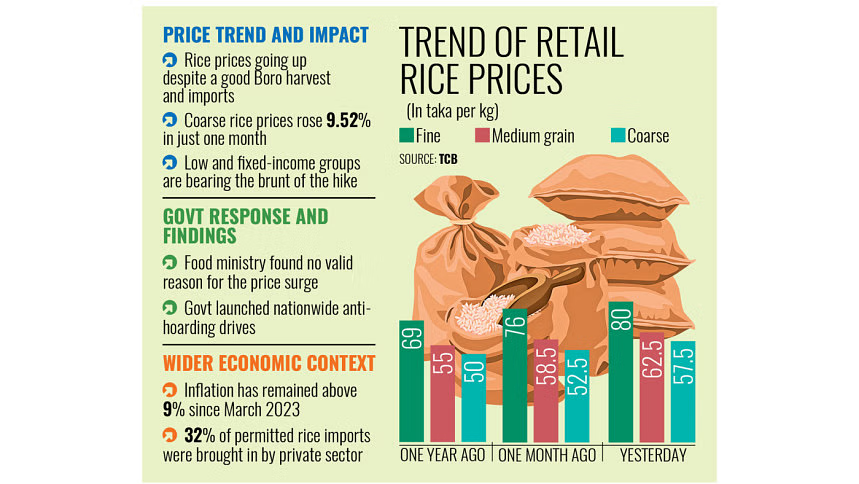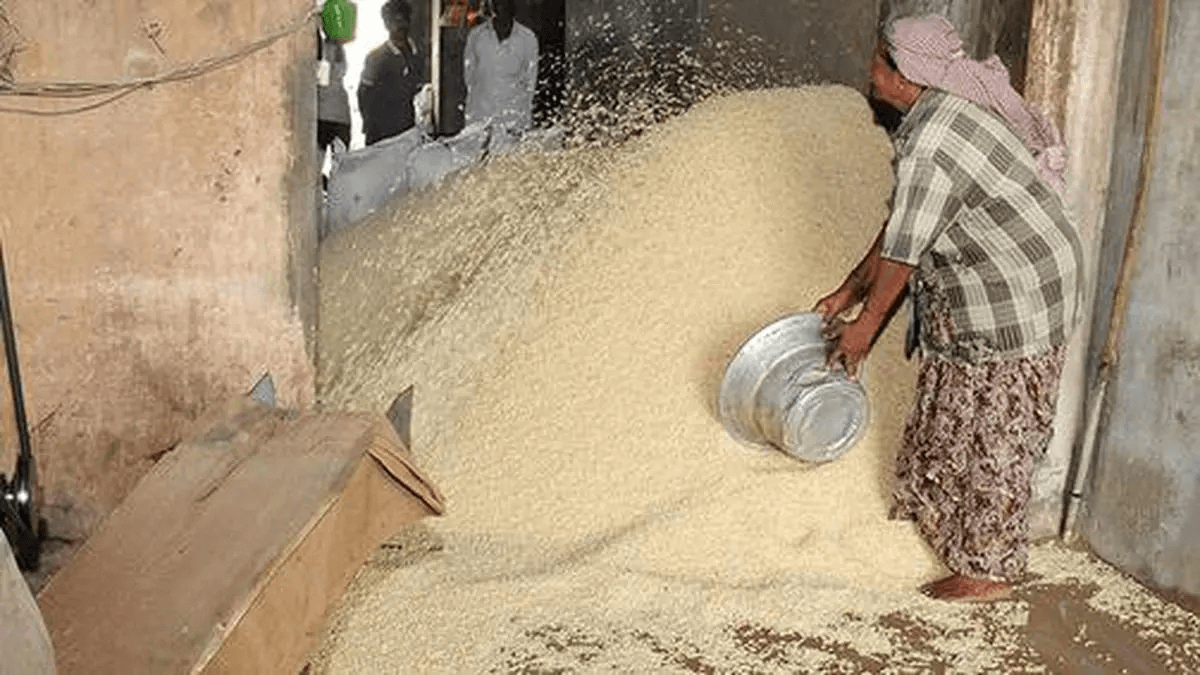Tags
How India’s rice export ban is hurting one of the country’s biggest shippers
KRBL, one of India’s top branded rice exporters, is facing significant pressure from the government’s ban on non-basmati white rice exports and the price cap on exports of basmati rice.
The Delhi-based company last week reported a 60% year-on-year (YoY) decline in export revenue in the second quarter of the current financial year mainly due to lower bulk and branded sales in some key markets. For the first half of the year, the export revenue was lower by 28% YoY on account of lower branded rice sales.
As of the end of FY22, exports contributed roughly 37% to the company’s revenues versus 50% in the previous year, per its annual report.
In July, the Indian government imposed a ban on exports of non-basmati white rice to reign in domestic retail prices. The affected categories — non-basmati and broken rice — accounted for a little under 50% of the total 22 million tons of Indian rice exports last year, per a Reuters report.
The ban was followed by the imposition of a minimum export price (MEP) of $1,200 a ton for exports of basmati rice. However, this was later reduced to $950 per tonne as it hampered sales.
India accounts for nearly 40% of world rice exports.
For KRBL, basmati constitutes a substantial portion of exports. but the company engages in bulk exports of non-basmati whenever favourable margins can be secured.
In a chat with CNBC-TV18, Ashish Jain, CFO of KRBL explained that the change in government regulations on exports affected bulk exports of non-basmati rice to China leading to the year-on-year drop in export revenue in the second quarter this year.
“Q2FY23 (second quarter of FY23) included bulk exports of non-basmati rice to China, which because of government regulations is no longer possible in the shape and form it existed,” he noted.
He also pointed out the general lacklustre performance of the export market attributing it to distribution challenges with respect to the branded business. However, he is ‘hopeful of solving it soon’.

The company has been facing distribution challenges, particularly in crucial markets such as Saudi Arabia. The Middle East is a large importer of rice from India. Nearly 80-85% of Inda’s total basmati exports are to the Middle East, with Saudi Arabia standing out as the primary market within that region.
“In terms of the overall outlook for the year, we are hoping that the Saudi distribution gets normalised sometime during the year and that gets us back on the block from an export perspective,” he added.
He is optimistic about the domestic business. The company’s domestic revenues have grown by 35% YoY and 27% YoY in the second quarter and the first half of FY24, respectively. The volumes grew in double-digits in both the consumer pack and bulk pack segments.

Overall, the company’s standalone net sales were down 8% at ₹1,213.39 crore in September 2023, down 8.03% from ₹. 1,319.28 crore last year. The quarterly net profit was at ₹153.14 crore, down over 28% from ₹213.11 crore last year.
KRBL, known for its flagship basmati brand, India Gate, has a market capitalisation of ₹8,090 crore. The company currently exports rice to more than 80 countries.

Shares of the company were trading around 2% higher on the NSE at ₹350 apiece. The shares have lost nearly 8% over the last month versus the benchmark Nifty 50’s marginal gain of 0.34%.
https://www.cnbctv18.com/business/krbl-india-rice-export-ban-basmati-non-basmati-18335921.htmPublished Date: November 16, 2023






